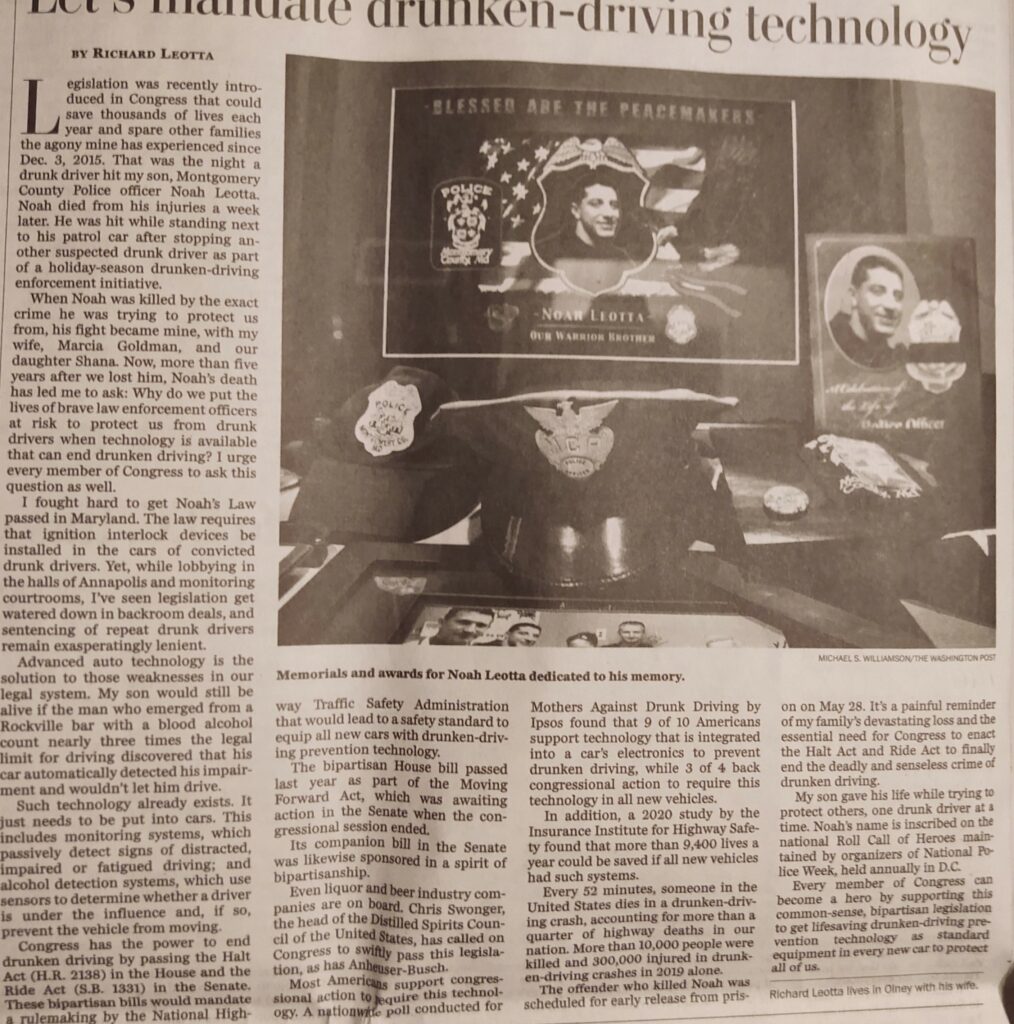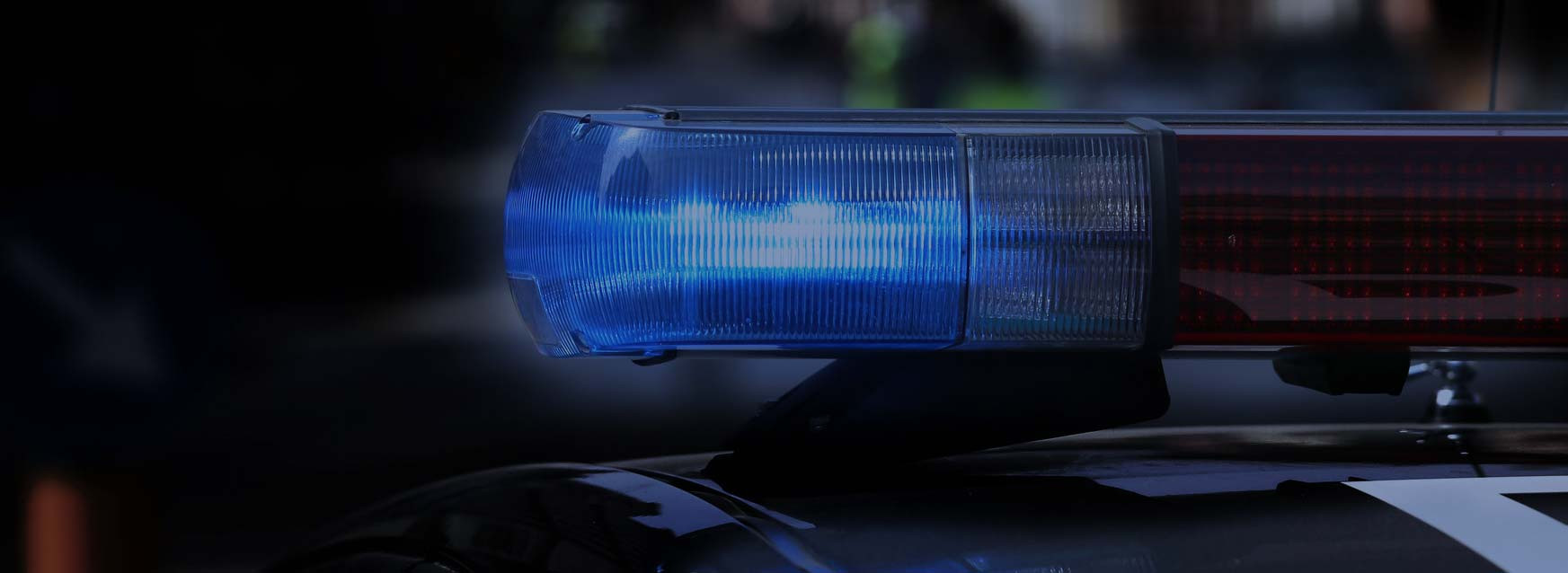Congress has the power to end drunken driving — by getting the right technology built into cars
Written by Rich Leotta – Originally published May 30, 2021 in The Washington Post.
Legislation was recently introduced in Congress that could save thousands of lives each year and spare other families the agony mine has experienced since Dec. 3, 2015. That was the night a drunk driver hit my son, Montgomery County Police officer Noah Leotta. Noah died from his injuries a week later. He was hit while standing next to his patrol car after stopping another suspected drunk driver as part of a holiday-season drunken-driving enforcement initiative.
When Noah was killed by the exact crime he was trying to protect us from, his fight became mine, with my wife, Marcia Goldman, and our daughter, Shana. Now, more than five years after we lost him, Noah’s death has led me to ask: Why do we put the lives of brave law enforcement officers at risk to protect us from drunk drivers when technology is available that can end drunken driving? I urge every member of Congress to ask this question as well.
I fought hard to get Noah’s Law passed in Maryland. The law requires that ignition interlock devices be installed in the cars of convicted drunk drivers. Yet, while lobbying in the halls of Annapolis and monitoring courtrooms, I’ve seen legislation get watered down in backroom deals, and sentencing of repeat drunk drivers remains exasperatingly lenient.
Advanced auto technology is the solution to those weaknesses in our legal system. My son would still be alive if the man who emerged from a Rockville bar with a blood alcohol levelnearly three times the legal limit for driving discovered that his car automatically detected his impairment and wouldn’t let him drive.
Such technology already exists. It just needs to be put into cars. This includes driving performance monitoring technology that monitors vehicle movement with systems such as lane-departure warning and attention assist; driver monitoring systems that monitor the driver’s head and eyes, typically using a camera or other sensors; and alcohol detection technology that uses sensors to determine whether a driver is under the influence and, if so, prevent the vehicle from moving.
Congress has the power to end drunken driving by passing the Halt Act (H.R. 2138) in the House and the Ride Act (S.B. 1331) in the Senate. These bipartisan bills would mandate a rulemaking by the National Highway Traffic Safety Administration that would lead to a safety standard to equip all new cars with drunken-driving prevention technology.
The bipartisan House bill passed last year as part of the Moving Forward Act, which was awaiting action in the Senate when the congressional session ended.
Its companion bill in the Senate was likewise sponsored in a spirit of bipartisanship.
Even liquor and beer industry companies are on board. Chris Swonger, the head of the Distilled Spirits Council of the United States, has called on Congress to swiftly pass this legislation, as has Anheuser-Busch.
Most Americans support congressional action to require this technology. A nationwide poll conducted for Mothers Against Drunk Driving by Ipsos found that 9 of 10 Americans support technology that is integrated into a car’s electronics to prevent drunken driving, while 3 of 4 back congressional action to require this technology in all new vehicles.
In addition, a 2020 study by the Insurance Institute for Highway Safety found that more than 9,400 lives a year could be saved if all new vehicles had such systems.
Every 52 minutes, someone in the United States dies in a drunken-driving crash, accounting for more than a quarter of highway deaths in our nation. More than 10,000 people were killed and 300,000 injured in drunken-driving crashes in 2019 alone.
The offender who killed Noah was scheduled for early release from prison on May 28. It’s a painful reminder of my family’s devastating loss and the essential need for Congress to enact the Halt Act and Ride Act to finally end the deadly and senseless crime of drunken driving.
My son gave his life while trying to protect others, one drunk driver at a time. Noah’s name is inscribed on the national Roll Call of Heroes maintained by organizers of National Police Week, held annually in D.C.
Every member of Congress can become a hero by supporting this common-sense, bipartisan legislation to get lifesaving drunken-driving prevention technology as standard equipment in every new car to protect all of us.




